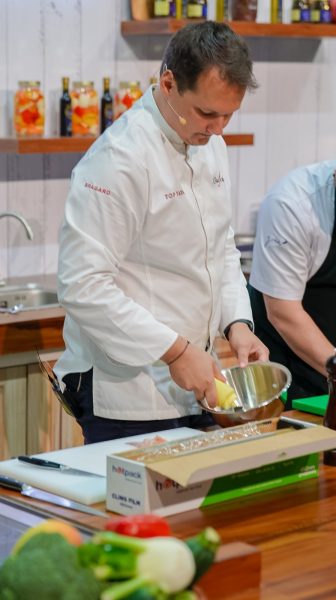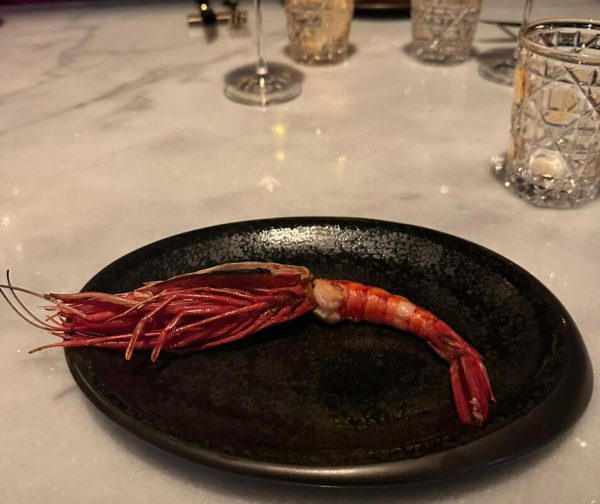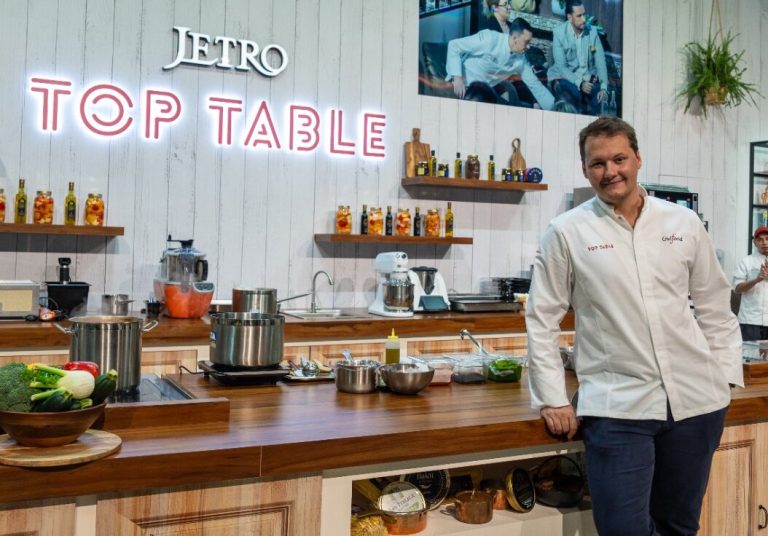São Paulo – Partner and chef of Restaurante Íz from Goiânia, Brazil, Ian Baiocchi (pictured above) presented in Dubai earlier this week the Brazilian contemporary cuisine with a twist. All recipes he made in the emirate used halal products only, with halal meaning fit for Muslim consumption. Baiocchi traveled to Dubai at the invitation of the Halal do Brasil project, a partnership between the Arab-Brazilian Chamber of Commerce (ABCC) and Brazilian Trade and Investment Promotion Agency (ApexBrasil) to promote made-in-Brazil halal products in Muslim-majority countries.
Within an extensive schedule that revolved around the Gulfood exhibition, Baiocchi cooked in one of Dubai’s most famous restaurants, ran a churrasco, made dishes using fine poultry cuts, and showed the world typical flavors from various regions of Brazil.

“The encouragement and opportunity to work with halal products ended up becoming a way to insert myself in the culture and tradition of the Arab world, which first seemed like a challenge. But unsurprisingly, I found very high-quality products that made me comfortable to prepare them, and I was delighted to see Brazilian products half around the world that both quality- and presentation-wise went above and beyond others that I saw in the Dubai market,” he told ANBA.
During his presentations in the city, Baiocchi created and executed a menu together with chef Matthis Grosjean, who runs Frnds, one of the most famous restaurants in Dubai. He also ran a churrasco at the Conrad Hotel and showcased preparation options with various poultry cuts at the stand of industry lobby ABPA. Later he participated in a masterclass of cuisine alongside chefs in the “Top Table” program that was part of the Gulfood official program.
Baiocchi said he tried to convey in his Dubai presentations flavors from Brazil with an “internationalized identity,” despite the limitations of transporting ingredients on a commercial flight. One dish that he made was a baru nut scallop-stuffed chicken wing, accompanied by cassava foam. Another one was a rib roast with salted granola and cassava foam – that was then finalized with banana, black garlic, and vanilla caramel, which provided a sweetness to contrast with the intensity of the rib,” the chef explained.

“Furthermore, for one of the dinners, I made a scarlet prawn rice, which is hidden inside the head of the crustacean [also known as carabineiro shrimp], whose fishing is quite recent in Brazil. I believe this shows we have much more than just products, as Brazilians can be bold, creative and innovative,” said Baiocchi.
He admitted that the “responsibility hit hard,” and that despite making unusual recipes, he knew they would satisfy the taste of the audience. The Arab culture, he says, is very similar to Brazil’s in terms of flavor intensity. “I believe that, just like me, the Arab world is not afraid to take risks,” he said.
Translation by Guilherme Miranda




